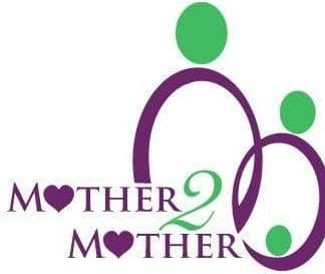In today’s quickly progressing instructional landscape, the need for dependable, thorough, and obtainable sources of info is more than ever. Research Encyclopedias have become crucial devices for students worldwide, providing a wealth of understanding at their fingertips. This write-up explores the relevance of Research Encyclopedias, their advancement for many years, and their role in supporting academic success.

As typical education and learning approaches adjust to digital innovations, discovering resources like Homework Encyclopedias remain to function as keystones of trainee learning, giving structured and curated material. Recognizing their value and impact can aid pupils utilize these resources effectively in their educational trip.
The Evolution of Research Encyclopedias
The idea of encyclopedias go back to old worlds, where expertise was meticulously documented and maintained. From the scrolls of the Collection of Alexandria to the printed quantities of the Renaissance, encyclopedias have historically been valued as databases of human success and understanding.
With the arrival of the digital age, encyclopedias have transcended their standard print style, becoming more interactive and obtainable. Digital Research Encyclopedias currently offer multimedia sources, including video clips, graphics, and interactive modules, which enhance the discovering experience and make complicated subjects extra understandable.
Today’s Research Encyclopedias are not just available online however are likewise continuously updated to make sure the details continues to be existing and relevant. This change not only democratizes accessibility to info but likewise changes exactly how trainees engage with their researches, assisting in a deeper understanding via diverse discovering modalities.
Secret Benefits of Research Encyclopedias
Homework Encyclopedias provide various advantages for students, educators, and even moms and dads supporting their youngsters’s finding out endeavors.

They work as dependable friends, using organized info that helps in academic research and research conclusion.
Among one of the most significant benefits is their capacity to give validated and detailed web content. Unlike open-source info, which can typically be unstable, encyclopedias are curated by specialists, ensuring accuracy and reputation. This reliability is vital for q&a website for detailed explanations students that need reliable details for their projects and research study jobs.
Moreover, Homework Encyclopedias assistance independent discovering and important reasoning. By motivating pupils to seek information proactively, they foster a feeling of curiosity and initiative, which are necessary skills for lifelong knowing.
- Comprehensive Content: Encyclopedias cover a wide variety of topics, using info on subjects spanning different disciplines.
- Interactive Learning: Multimedia elements engage different discovering styles, making info absorbable and appealing.
- Integrity: Curated by experts, encyclopedias supply trustworthy and precise information.
- Regular Updates: Regular updates make certain students have accessibility to one of the most present information offered.
Comprehending these advantages allows trainees to maximize their finding out potential by successfully utilizing Research Encyclopedias as part of their research regimen.
How to Utilize Research Encyclopedias Successfully
To make one of the most out of Research Encyclopedias, trainees should embrace critical strategies to their usage. This starts with familiarizing themselves with the format and navigating of these sources. Understanding exactly how to look for specific topics or just how to use index attributes can significantly lower time invested in study.
One more essential technique is integrating encyclopedias right into more comprehensive research study methods. While encyclopedias provide fundamental expertise, they need to be utilized alongside various other research study techniques for an extra nuanced understanding of complex topics. This mix of sources broadens a trainee’s viewpoint and grows their understanding of topic.
Furthermore, pupils must utilize the multimedia includes available in digital encyclopedias. These can facilitate a much better understanding of tough principles with visualization and interactive learning, therefore boosting retention and understanding.
Leading Homework Encyclopedias Available Today
The globe of Homework Encyclopedias is substantial, with countless options offered for trainees of different age groups and academic degrees. Below are some very related to encyclopedias that have actually stood the test of time and continue to support student success effectively.
- Brittanica Online: Well-known for its reliable content, Britannica provides thorough details on a vast variety of subjects, with continual updates and multimedia elements.
- Globe Book Online: Offers an easy-to-navigate user interface and tailored resources for different age, making sure web content is age-appropriate and engaging.
- Encarta (Historic): Though no longer in magazine, Encarta set a criterion for digital encyclopedias and remains a noteworthy reference for its pioneering payments.
- Khan Academy: While not a typical encyclopedia, Khan Academy provides an extensive library of academic web content in a layout that complements typical universal resources.
These sources supply an exceptional beginning factor for trainees seeking high-grade info. Their range ensures that customers can discover the appropriate fit for their certain learning demands and choices.
The Future of Homework Encyclopedias
As technology remains to breakthrough, the future of Homework Encyclopedias shows up appealing, with technologies focused on improving customer experience and accessibility to information.
Artificial intelligence is likely to play a significant function, supplying personalized knowing paths and more intuitive search functions, which can reinvent just how trainees interact with these resources.
Additionally, the integration of virtual and enhanced fact could open up new opportunities for experiential knowing, permitting students to engage with material in immersive settings. Such developments are set to redefine the instructional landscape, making discovering more interactive and impactful.
The Role of Educators and Students
In this developing context, instructors and students must adapt to utilize these technical improvements properly. Educators can direct trainees in using encyclopedias as part of their curriculum, urging essential thinking and research skills.
For students, the crucial hinge on remaining curious and open up to checking out new devices and resources. By welcoming Research Encyclopedias and similar educational technologies, they can improve their scholastic performance and plan for the challenges of tomorrow’s knowledge-driven world.


